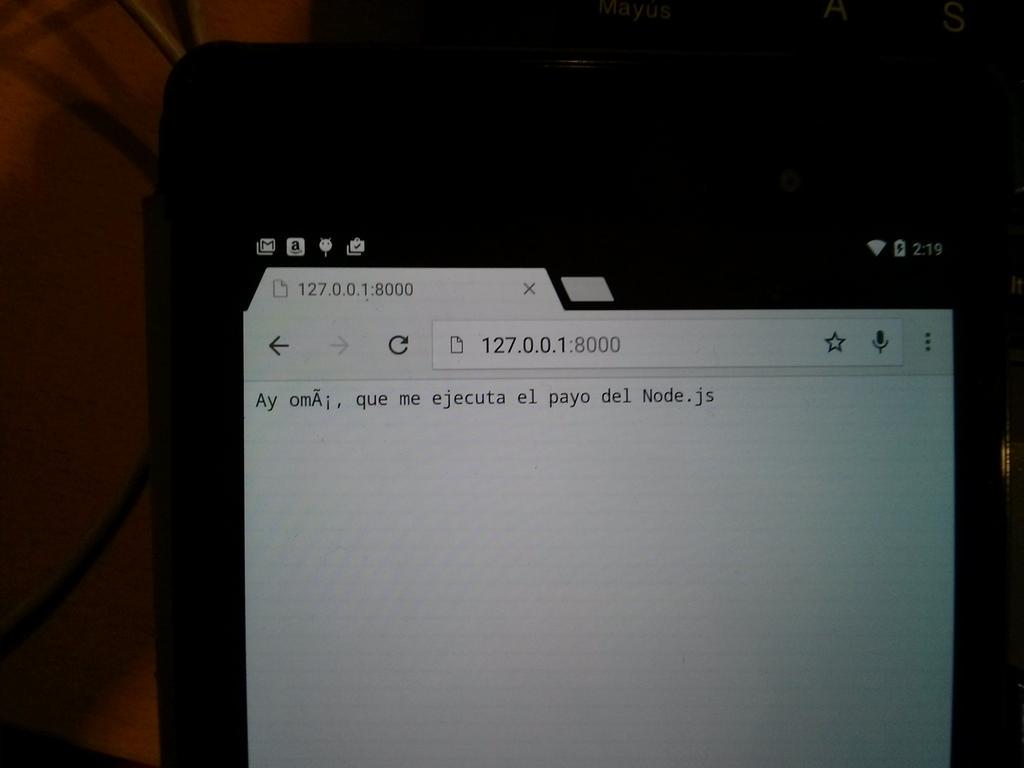«Producir y nutrir,
producir y no poseer,
obrar y no retener,
acrecentar y no regir,
son el misterio de la vida.»
Los sueldos en el mundo de la informática
Sólo como referencia, he encontrado esta publicación del ministerio de trabajo de los EEUU: May 2014 National Occupational Employment and Wage Estimates con las estadísticas de sueldos de las profesiones informáticas en ese país:
| Occupation code | Occupation title (click on the occupation title to view its profile) | Level | Employment | Employment RSE | Employment per 1,000 jobs | Median hourly wage | Mean hourly wage | Annual mean wage | Mean wage RSE |
|---|---|---|---|---|---|---|---|---|---|
| 11-3021 | Computer and Information Systems Managers | detail | 330360 | 0.8% | 2,445 | $61.37 | $65.52 | $136,280 | 0.4% |
| 15-0000 | Computer and Mathematical Occupations | major | 3834180 | 0.5% | 28,374 | $38.18 | $40.37 | $83,970 | 0.5% |
| 15-1100 | Computer Occupations | minor | 3692980 | 0.5% | 27,329 | $38.17 | $40.31 | $83,840 | 0.5% |
| 15-1111 | Computer and Information Research Scientists | detail | 24210 | 4.2% | 0,179 | $52.09 | $54.42 | $113,190 | 1.4% |
| 15-1120 | Computer and Information Analysts | broad | 608500 | 0.9% | 4,503 | $40.13 | $42.25 | $87,890 | 0.3% |
| 15-1121 | Computer Systems Analysts | detail | 528320 | 0.9% | 3,910 | $39.76 | $41.98 | $87,320 | 0.4% |
| 15-1122 | Information Security Analysts | detail | 80180 | 2.0% | 0,593 | $42.74 | $44.04 | $91,600 | 0.6% |
| 15-1130 | Software Developers and Programmers | broad | 1492040 | 0.8% | 11,042 | $43.90 | $45.81 | $95,280 | 0.8% |
| 15-1131 | Computer Programmers | detail | 302150 | 1.4% | 2,236 | $37.28 | $39.75 | $82,690 | 1.3% |
| 15-1132 | Software Developers, Applications | detail | 686470 | 1.2% | 5,080 | $45.92 | $47.85 | $99,530 | 1.1% |
| 15-1133 | Software Developers, Systems Software | detail | 382400 | 1.6% | 2,830 | $49.46 | $50.98 | $106,050 | 0.6% |
| 15-1134 | Web Developers | detail | 121020 | 1.5% | 0,896 | $30.52 | $33.02 | $68,670 | 0.7% |
| 15-1140 | Database and Systems Administrators and Network Architects | broad | 617680 | 0.6% | 4,571 | $38.87 | $40.85 | $84,970 | 0.2% |
| 15-1141 | Database Administrators | detail | 112170 | 1.0% | 0,830 | $38.60 | $39.56 | $82,280 | 0.3% |
| 15-1142 | Network and Computer Systems Administrators | detail | 365430 | 0.8% | 2,704 | $36.44 | $38.35 | $79,770 | 0.3% |
| 15-1143 | Computer Network Architects | detail | 140080 | 1.4% | 1,037 | $47.32 | $48.42 | $100,710 | 0.4% |
| 15-1150 | Computer Support Specialists | broad | 738030 | 0.7% | 5,462 | $24.22 | $26.42 | $54,960 | 0.3% |
| 15-1151 | Computer User Support Specialists | detail | 563540 | 0.8% | 4,170 | $22.89 | $24.76 | $51,500 | 0.3% |
| 15-1152 | Computer Network Support Specialists | detail | 174490 | 1.3% | 1,291 | $29.72 | $31.80 | $66,140 | 0.5% |
| 15-1199 | Computer Occupations, All Other | detail | 212510 | 1.0% | 1,573 | $40.10 | $41.12 | $85,520 | 1.0% |
Ojalá os sirvan.
How after an upgrade my /etc/sysconfig/docker-storage got me mad
I have a running docker service in a Fedora 21 system for a while. Recently I got some disgusting erros preventing restart docker:
device-mapper: table: 253:7: thin: Couldn't open thin internal device
I am a docker newbie so I lost a lot of time thinking if my thin device got corrupt or whatever. Indeed I openened an issue (#16341) to the docker project to report it. But now I conclude is not an upstream error but a Fedora's packaging one.
The problem was caused in this regular update:
-0:docker-io-1.6.2-3.gitc3ca5bb.fc21.x86_64 +0:docker-io-1.8.1-2.git32b8b25.fc21.x86_64 -0:docker-storage-setup-0.0.3-1.fc21.noarchwhich did this:
-DOCKER_STORAGE_OPTIONS= +DOCKER_STORAGE_OPTIONS=--storage-driver devicemapper --storage-opt -dm.fs=xfs --storage-opt dm.thinpooldev=/dev/mapper/vg_patxuko-docker--pool
And after the next system reboot the docker service was unable to restart. Removing the DOCKER_STORAGE_OPTIONS value returned system to service.
More details at this comment.
Hope it helps
.Compiling node.js for Android Lollipop
While participating in the Nordic IoT Hackathon 2015 our team Hello North (wrongly tagged as «HackLab team») wanted to explore the potential of running node.js applications running native in Android.
Happily this was solved by Yaron Y. Goland and described in a post. Using his method I've compiled node.js against android-ndk-r10d running the example on a 4.2.2 rooted device.
The next step was to try in a unrooted one, but only got at first a 5.0 Lollipop one. Execution failed with a error: only position independent executables (PIE) are supported. error message. Some investigation got me to a solved bug report. The magic trick seems to be just this patch.
It took me some time to understand how to add this to the node.js building configuration system but seems got fixed just like this:
--- /home/olea/node/android-configure~ 2015-04-11 02:46:04.063966802 +0200
+++ /home/olea/node/android-configure 2015-04-11 01:56:34.470154253 +0200
@@ -6,14 +6,16 @@
--toolchain=arm-linux-androideabi-4.8 \
--arch=arm \
--install-dir=$TOOLCHAIN \
- --platform=android-9
+ --platform=android-16
export PATH=$TOOLCHAIN/bin:$PATH
export AR=arm-linux-androideabi-ar
export CC=arm-linux-androideabi-gcc
export CXX=arm-linux-androideabi-g++
export LINK=arm-linux-androideabi-g++
+export CPPFLAGS="-fPIE"
+export LDFLAGS="-fPIE -pie -L$PREFIX/lib"
And this is the test:

¡Yepa!
PS: Just checked the same build using android-16 platform runs in 4.2.2. ¡Double Yepa!